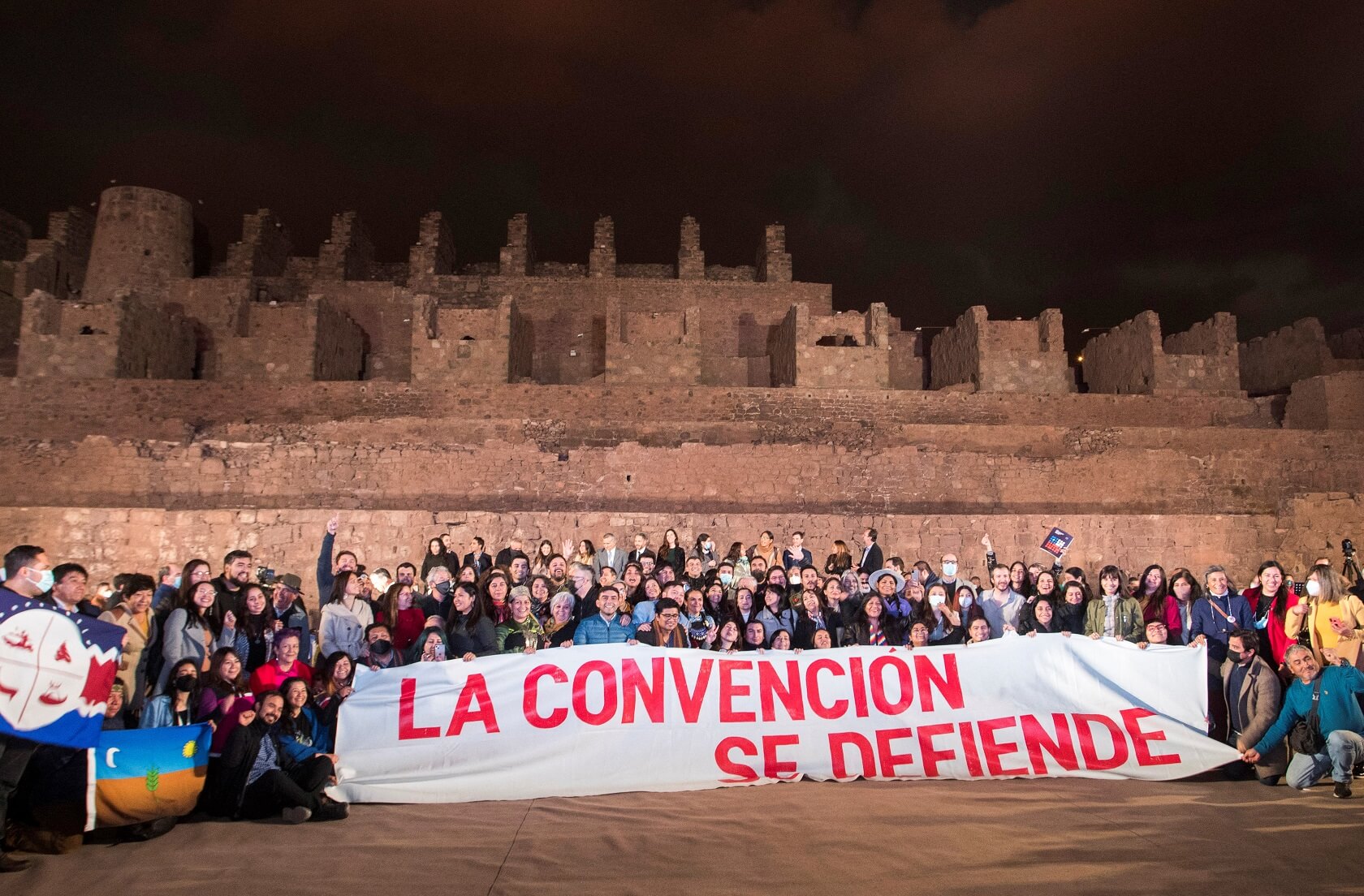After a year of negotiations, 154-member Chile’s Constitutional Convention will on Monday hand over its proposal for a new constitution to President Gabriel Boric, following which it will be put to a vote in a referendum to be held in September.
Gaspar Domínguez, the constituent assembly’s vice president, hailed the new constitution as a “democratic victory.”
The 388-article draft proposal suggests radical changes to the Pinochet-era constitution that have generated highly polarised reactions.
Over the past year a convention of people from around the country has been rewriting Chile's constitution. It's a v big moment: first rewrite since Pinochet. For a while they mulled banning some forms of mining altogether. The final draft is less radical but still proposes limits https://t.co/wOf8mmd3SU
— Ed Conway (@EdConwaySky) July 2, 2022
The left have said the current constitution is the reason behind unequal wealth distribution in the country, arguing that it promotes unregulated privatisation and neoliberal policies. The new constitution thus proposes radical changes to the powers of the judiciary, the executive, and the legislature by placing greater responsibility on the government to ensure the provision of adequate public services, guarantee gender equality, and provide a pathway to autonomy for Indigenous communities.
It also proposes the devolution of several key powers from the president to regional governments, and allows the president to call for immediate re-election just once; similarly, members of congress and the house may only be re-elected once for a total of two four-year terms. At the same time, it would eliminate the Senate and establish a Chamber of the Regions. The president would have less power to unilaterally propose tax reforms, while Congress may repeal laws and citizens may submit bills. Indigenous communities, meanwhile, would be given a parallel justice system that is headed by their own ancestral authorities.
Away from the governmental structure, it also calls for a guarantee of the right to abortion
Chile has finalized a draft of a constitution to replace the one created under the U.S.-backed neoliberal dictator Augusto Pinochet.
— Democracy Now! (@democracynow) May 19, 2022
"It has been a demand of social movements, of the civil society in Chile for decades," says @PabloAbufom of Chile's "Solidaridad" Movement. pic.twitter.com/LVC27w8ZAk
In this regard, Domínguez said, “On top of social rights, housing rights and education rights, the constitution innovates on matters of equality,” saying the document creates quotas for women in public institutions and secures the inclusion of the LGBTQ+ community in political debates.
The right wing, however, has vociferously opposed the re-framing of the country’s constitution. Conservative constituent Ruggero Cozzi called the new draft “disappointing,” telling Al Jazeera that it fails to bring about “unity and social cohesion.”
He also defended Chile’s free market system, asserting, “getting the state to organise everything won’t result in the changes that are needed, and has not ended well for other Latin American countries.” Cozzi is thus urging the right to reject the document in September.
Centre-right Republican parties—Independent Democratic Union (UDI), National Renewal (RN), and Political Evolution (Evopoli)—have also voiced their firm rejection of the proposal.
“The draft rethinks the state’s relationship with social rights, and enshrines representative democracy to open the door to other forms of participation” @tomaslaibe
— John Bartlett (@jwbartlett92) June 29, 2022
The constitution goes to a plebiscite on 4 September. All Chileans 18 and older must vote. https://t.co/lywXihkxph
Keeping this in mind, Sebastián Salazar, a constitutional lawyer, told local newspaper La Nación that the referendum will be a highly “polarised campaign.”
In fact, an opinion poll conducted by market and public opinion research company Cadem revealed that 51% of citizens are likely to reject the new magna carta, with only 33% pledging support for its approval.
Left-wing president Boric, who secured a decisive victory in last year’s election, was one of the driving forces behind the 2019 protests against his predecessor Sebastián Piñera and rising income inequality. The protests ultimately led to a referendum in October 2020, when close to 80% of voters voted to initiate a process to draft a new constitution. Subsequently, in May 2021, they voted to entrust the process to an independent committee.

